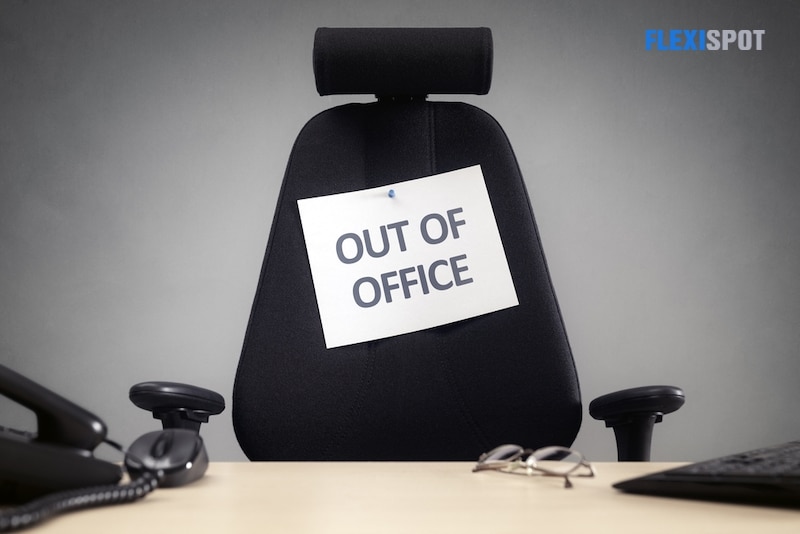Learning how to deal with disgruntled employees is a significant aspect of managing a business. People are getting increasingly dissatisfied with their jobs. As per a survey, 51% of employees are unhappy with their jobs. The coronavirus outbreak has only exacerbated this. As reported, a record-breaking four million people resigned from their positions in April 2021. However, it's understandable that cheering up disgruntled employees can be difficult. You can simply raise workplace morale with the correct methods in place.
One of the leading causes of turnover is job discontent. It's because work is one of the most important aspects of life. Most of us are enticed by the prospect of employment. It could be in preparation for one or the middle of one. Because work is so crucial in one's life, employees have certain expectations of it. When these expectations are not met, it leads to employee discontent and turnover.
Dissatisfied employees can be challenging to notice, making them a challenging problem to solve. Unlike anyone who talks honestly about their difficulties, a disgruntled employee is more prone to use passive-aggressive communication or not say anything to anyone at all. Dissatisfied employees are struggling with more than simply a case of Mondays. They are intentionally alienated from the environment of your organization and, more significantly, their work. An unhappy employee can destroy teamwork and workplace morale if left unaddressed.
Signs of Unhappy Employees
If you're concerned about employee satisfaction at your business, your HR team should focus on the following signs:
Less Effort
An employee who genuinely enjoys their job puts in the effort; a disgruntled employee does not. Team members that want to advance in your company will almost certainly meet or exceed their work requirements. However, if you have a disgruntled team member, you'll observe that person doing the bare minimum. This is a clear indication that the employee has lost any interest in their job.
Postpones Work
Employees' frequent postponement of work is also another concern that contributes to low morale. Procrastination leads to a distaste of one's duty, and work piles up due to postponement. This task eventually becomes overwhelming, lowering employee motivation to continue working on it.
Poor Engagement
Engaging with coworkers is a big part of what makes work life so enjoyable. Humans generally form friendships in the workplace. But, you'll undoubtedly observe that disgruntled colleagues at work start to withdraw. If an employee who routinely participates in messaging or chat talks or after-work events no longer does so, it's a strong indication that they're dissatisfied with their work.
Gets Easily Sidetracked
It's never a good idea to be easily distracted at work. It not only decreases productivity but also demonstrates disinterest at work. Employees are unlikely to be readily sidetracked from their favorite activities. If your employee is readily disturbed by commonplace events, it indicates that they are disengaged at work.
Absenteeism
Employees should take PTO regularly to monitor their mental wellness. However, if your team members begin to want time off frequently, you may have a situation. That suggests the employee in issue is having trouble staying in the workplace or concentrating on their task, leading to their resignation.
Body Language Changes
An employee doesn't always have to say anything to demonstrate their dissatisfaction. If you detect a shift in an individual's body language or visual cues, it could hint that they are unhappy with their job. Frowning faces, a gloomy tone, or even napping at their workstation are all signs that you have frustrated workers on your team.
Irritability
One of your employees may be having a poor day, causing them to become agitated quickly. However, if this happens frequently, it indicates that you are unhappy with your job. Employees are commonly annoyed in the workplace due to a lack of sincere gratitude for their labor. If you have easily agitated employees, there's a good possibility you're experiencing employee dissatisfaction. Constant irritability indicates that you are sick of something, which is never a positive example.
Doesn't Offer Feedback, Suggestions, or Ideas
Employees that are the happiest are always willing to share their ideas in both private and group sessions. On the other end, unsatisfied employees want to get out of the board room or office as quickly as possible. These people aren't going to give you any helpful criticism. If they do speak openly during meetings or brainstorming sessions, it's more likely that they'll be criticizing others' ideas rather than offering their own.
Colleague Complaints
Employees that are content perform what is expected of them. It's excellent if their peers have nothing else to say about their effectiveness. Because their work is of exceptional quality, they are willing to assist others, and they have a positive attitude. It's a red flag if several of your employees start to complain about the same person. There could be things going on in the background that you aren't aware of, indicating that you have a disgruntled employee. The last thing you want is for one person to drag your whole team's performance down.
Customer Complaints
If an employee remains miserable long enough, it will begin to affect their work performance, and this is where you will hit a snag. It's an obvious indication that an employee has psychologically pulled out of their work if your customer satisfaction team starts receiving an avalanche of customer dissatisfaction, especially if they've never gotten them before.
Sporadic Arrival and Departure
Coming to work late and leaving ahead of log-out time is a symptom of wanting to get away from it all. This is because it is human behavior to avoid situations we dislike. If this is a regular occurrence at your workplace, it demonstrates a lack of interest in the job. With time, this disdain for work only worsens and jeopardizes one's job advancement.
Negativity, Stress, and Unhappiness
Employees are often cheerful as a result of belongingness and friendship. However, this will not always be the case. Employees that exhibit a pattern of pessimism, tension, or unhappiness at work demonstrate displeasure with their workplace environment.
Don't let one disgruntled employee take the rest of the team down with them. Act swiftly as soon as you notice one of your employees is unhappy. The sooner you address the issue, the more likely you are to resolve it before it becomes uncontrollable.




